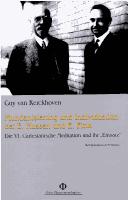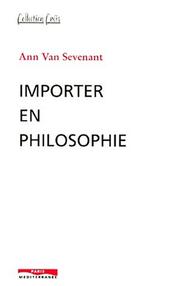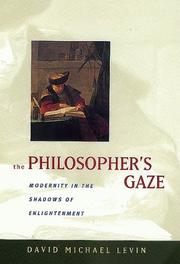| Listing 1 - 10 of 17 | << page >> |
Sort by
|
Book
ISBN: 8822129156 9788822129154 Year: 1998 Volume: 174 27 Publisher: Firenze : La Nuova Italia,
Abstract | Keywords | Export | Availability | Bookmark
 Loading...
Loading...Choose an application
- Reference Manager
- EndNote
- RefWorks (Direct export to RefWorks)

ISBN: 3826025512 9783826025518 Year: 2003 Volume: 2 Publisher: Würzburg Königshausen und Neumann
Abstract | Keywords | Export | Availability | Bookmark
 Loading...
Loading...Choose an application
- Reference Manager
- EndNote
- RefWorks (Direct export to RefWorks)
Book
ISBN: 9783830521013 3830521014 Year: 2015 Publisher: Berlin : BWV Berliner Wissenschafts-Verlag,
Abstract | Keywords | Export | Availability | Bookmark
 Loading...
Loading...Choose an application
- Reference Manager
- EndNote
- RefWorks (Direct export to RefWorks)
Paul Ricoeur. --- Marcel Proust. --- Augustinus. --- Aristoteles. --- Virginia Woolf. --- Robert Musil. --- Thomas Mann. --- Edmund Husserl. --- Zeit. --- Erzähltheorie. --- Narrative Identität. --- Narrative-turn.

ISBN: 2842720644 Year: 1999 Publisher: Paris Paris-Méditerranée
Abstract | Keywords | Export | Availability | Bookmark
 Loading...
Loading...Choose an application
- Reference Manager
- EndNote
- RefWorks (Direct export to RefWorks)
Methodology --- Punctuation --- Méthodologie --- Ponctuation --- Husserl, Edmund, --- Heidegger, Martin, --- Derrida, Jacques --- Technique --- Méthodologie --- Technique. --- Edmund HUSSERL --- Heidegger, Martin (1889 - 1976) --- Philosophie
Book
ISBN: 3839441005 Year: 2017 Publisher: Bielefeld transcript Verlag
Abstract | Keywords | Export | Availability | Bookmark
 Loading...
Loading...Choose an application
- Reference Manager
- EndNote
- RefWorks (Direct export to RefWorks)
Die Fragestellungen der Metaphysik, so scheint es, sind nicht mehr zeitgemäß. Der Begriff erinnert an abgehobene Systeme ohne jeden Realitätssinn. Dabei gibt es kein Denken ohne Metaphysik. Unter Bezugnahme auf die Traditionen der Phänomenologie und der französischen Philosophie versteht Robert Hugo Ziegler Endlichkeit als eine positive Auszeichnung, während der Begriff der Zeitlichkeit die erste Dimension von Sein beschreibt. Sein grundlegender Beitrag zur Reflexion über Mensch und Welt zeigt, wie sich die Philosophie selbstbewusst einer Erneuerung der Metaphysik stellen kann. »Zieglers Monographie besticht sowohl durch die Eigenständigkeit des Ansatzes als auch durch den Reichtum der zahlreichen erkenntnis- und wissenschaftstheoretischen, aber auch ästhetischen Analysen, die sich um Altermination, Vertex und Apeirontologie gruppieren.« Sandra Lehmann, Journal Phänomenologie, 49 (2018)
Philosophie; Metaphysik; Edmund Husserl; Henri Bergson; Zeit; Subjektivität; Phänomenologie; Sprache; Zeitphilosophie; Französische Philosophiegeschichte; Philosophy; Metaphysics; Time; Subjectivity; Phenomenology; Language; Philosophy of Time; French History of Philosophy --- Edmund Husserl. --- French History of Philosophy. --- Henri Bergson. --- Language. --- Metaphysics. --- Phenomenology. --- Philosophy of Time. --- Subjectivity. --- Time.
Book
ISBN: 9783839466803 Year: 2023 Publisher: Bielefeld
Abstract | Keywords | Export | Availability | Bookmark
 Loading...
Loading...Choose an application
- Reference Manager
- EndNote
- RefWorks (Direct export to RefWorks)
While Alzheimer's might be associated with a difficulty to express oneself, Ana Paula Barbosa-Fohrmann addresses this topic by examining experiences with Alzheimer's based on narratives. In this original contribution, she studies the nexus of life stories, subjectivity, fragmentation, and fiction. The philosophical basis of this research is phenomenology from the end of the 19th century to the middle of the 20th century, specifically that of Husserl and above all that of Merleau-Ponty. This work also draws on Proust's and Camus's literature as well as Beckett's dramaturgy.
Alzheimer's disease --- Patients. --- Albert Camus. --- Art. --- Cultural Studies. --- Dramaturgy. --- Edmund Husserl. --- Existentialism. --- Fiction. --- Literature. --- Marcel Proust. --- Maurice Merleau-Ponty. --- Medicine. --- Nineteenth Century. --- Painting. --- Phenomenology. --- Philosophical Anthropology. --- Philosophy of Body. --- Philosophy. --- Samuel Beckett. --- Subjectivity. --- Twentieth Century.
Book
ISBN: 9789949326143 Year: 2014 Publisher: Tartu University of Tartu Press
Abstract | Keywords | Export | Availability | Bookmark
 Loading...
Loading...Choose an application
- Reference Manager
- EndNote
- RefWorks (Direct export to RefWorks)
The fourth volume in the Approaches to Culture Theory series is a contemporary Estonian anthology in culture theory. Most of the authors are members of the research groups of the Centre of Excellence in Cultural Theory: archaeology, cultural communication studies, contemporary cultural studies, ethnology, folkloristics, religious studies, landscape studies, and semiotics. These scholars have revised their recent work to highlight current topics in culture theory in Estonia and use theoretical analyses to advance the self-description and self-understanding of culture. Contributors include Aili Aarelaid-Tart, Martin Ehala, Halliki Harro-Loit, Tiiu Jaago, Anne Kull, Kalevi Kull, Kristin Kuutma, Valter Lang, Art Leete, Kati Lindström, Mihhail Lotman, Hannes Palang, Rein Raud, Raul Tiganik, Peeter Torop, Ülo Valk, and Tõnu Viik.URI
Ethnology --- Culture --- Anthropology --- Research --- Human beings --- Cultural sociology --- Sociology of culture --- Civilization --- Popular culture --- Cultural anthropology --- Ethnography --- Races of man --- Social anthropology --- Social aspects --- Primitive societies --- cultural typology --- semiotics --- translation --- culture --- culture theory --- cultural communication --- semiosphere --- text --- chronotype --- religion --- language --- philosophy of culture --- anthropology --- identity --- landscape --- communication --- Edmund Husserl --- Folklore --- Social sciences
Book
ISBN: 9781785420214 Year: 2015 Publisher: Open Humanities Press
Abstract | Keywords | Export | Availability | Bookmark
 Loading...
Loading...Choose an application
- Reference Manager
- EndNote
- RefWorks (Direct export to RefWorks)
Sensation is a concept with a conflicted philosophical history. It has found as many allies as enemies in nearly every camp from empiricism to poststructuralism. Polyvalent, with an uncertain referent, and often overshadowed by intuition, perception, or cognition, sensation invites as much metaphysical speculation as it does dismissive criticism. The promise of sensation has certainly not been lost on the phenomenologists who have sought to 'rehabilitate' the concept. In Plastic Bodies, Tom Sparrow argues that the phenomenologists have not gone far enough, however. Alongside close readings of Merleau-Ponty and Levinas, he digs into an array of ancient, modern, and contemporary texts in search of the resources needed to rebuild the concept of sensation after phenomenology. He begins to assemble a speculative aesthetics that is at once a realist theory of sensation and a philosophy of embodiment that breaks the form of the 'lived' body. Maintaining that the body is fundamentally plastic and that corporeal identity is constituted by a conspiracy of sensations, he pursues the question of how the body fits into/fails to fit into its aesthetic environment and what must be done to increase the body’s power to act and exist.
Phenomenology. --- Senses and sensation. --- Identity (Philosophical concept) --- Philosophy, Modern --- Identity --- Philosophy --- Comparison (Philosophy) --- Resemblance (Philosophy) --- Sensation --- Sensory biology --- Sensory systems --- Knowledge, Theory of --- Neurophysiology --- Psychophysiology --- Perception --- levinas --- merleau-ponty --- phenomenology --- sensation --- Consciousness --- Edmund Husserl --- Emmanuel Levinas --- Immanuel Kant --- Lived body --- Maurice Merleau-Ponty --- Ontology
Book
ISBN: 9033416689 Year: 1987 Publisher: Leuven Acco
Abstract | Keywords | Export | Availability | Bookmark
 Loading...
Loading...Choose an application
- Reference Manager
- EndNote
- RefWorks (Direct export to RefWorks)
filosofie --- filosofen --- Philosophy --- Hegel, Georg W.F. --- Frege, Gottlob --- Husserl, Edmund --- Nietzsche, Friedrich W. --- Benjamin, W. --- Bergson, Henri --- Filosofie --- Glucksmann, A. --- Heidegger, Martin --- Philosophie --- filosofische stelsels --- Hegel --- Nietzsche --- Frege --- Husserl --- 1 "18" --- #GGSB: Filosofie --- #GGSB: Filosofie (19e eeuw) --- #GGSB: Filosofie (20e eeuw) --- #GBIB:SMM --- #gsdbF --- Filosofen --- 141.3 --- Edmund Husserl --- Friedrich Nietzsche --- Georg Hegel --- 14 --- Filosofie:--19de eeuw --- #A9201W --- 1 "18" Filosofie:--19de eeuw --- Nietzsche, Friedrich --- Filosofie (19e eeuw) --- Filosofie (20e eeuw)

ISBN: 0520217802 0520922565 0585326096 9780520922563 9780585326092 9780520217805 Year: 1999 Publisher: Berkeley University of California Press
Abstract | Keywords | Export | Availability | Bookmark
 Loading...
Loading...Choose an application
- Reference Manager
- EndNote
- RefWorks (Direct export to RefWorks)
"David Michael Levin's ongoing exploration of the moral character and enlightenment-potential of vision takes a new direction in The Philosopher's Gaze. Levin examines texts by Descartes, Husserl, Wittgenstein, Nietzsche, Heidegger, Benjamin, Merleau-Ponty, and Levinas, using our culturally dominant mode of perception and the philosophical discourse it has generated as the site for his critical reflections on the moral culture in which we are living."--Jacket. "In Levin's view, all these philosophers attempted to understand, one way or another, the distinctive pathologies of the modern age. But every one also attempted to envision - if only through the faintest of traces, traces of mutual recognition, traces of another way of looking and seeing - the prospects for a radically different lifeworld."--Jacket.
Metaphysics --- Philosophy --- Philosophy, Modern. --- Appearance (Philosophy) --- Eyesight --- Filosofie [Moderne ] --- Philosophie moderne --- Philosophy [Modern ] --- Seeing --- Sight --- Vision --- Vision (Physiologie) --- Zien [Het ] --- Philosophy, Modern --- Modern philosophy --- Vision. --- Philosophy & Religion --- Senses and sensation --- Blindfolds --- Eye --- Physiological optics --- aesthetic theory. --- benjamin. --- cultural criticism. --- descartes. --- edmund husserl. --- emmanuel levinas. --- enlightenment. --- ethics. --- friedrich nietzsche. --- heidegger. --- historical materialism. --- human experience. --- husserl. --- intentionality. --- levinas. --- martin heidegger. --- maurice merleau-ponty. --- merleau-ponty. --- modes of perception. --- moral character. --- morality. --- mutual recognition. --- natural philosophy. --- nietzsche. --- nihilism. --- ocularcentrism. --- perspectivism. --- phenomenology. --- philosophy. --- politics. --- privileging of vision. --- rene descartes. --- walter benjamin. --- wittgenstein.
| Listing 1 - 10 of 17 | << page >> |
Sort by
|

 Search
Search Feedback
Feedback About UniCat
About UniCat  Help
Help News
News